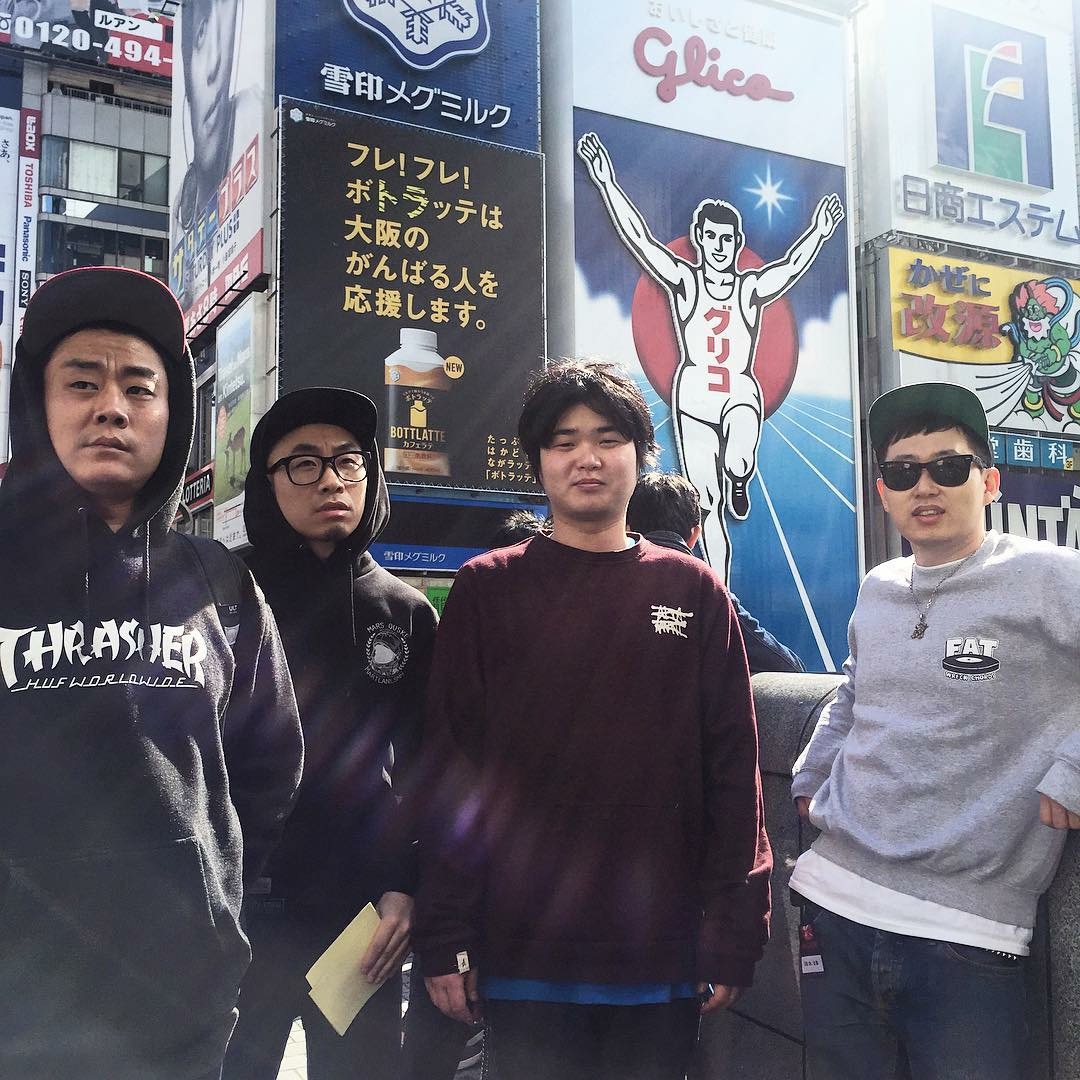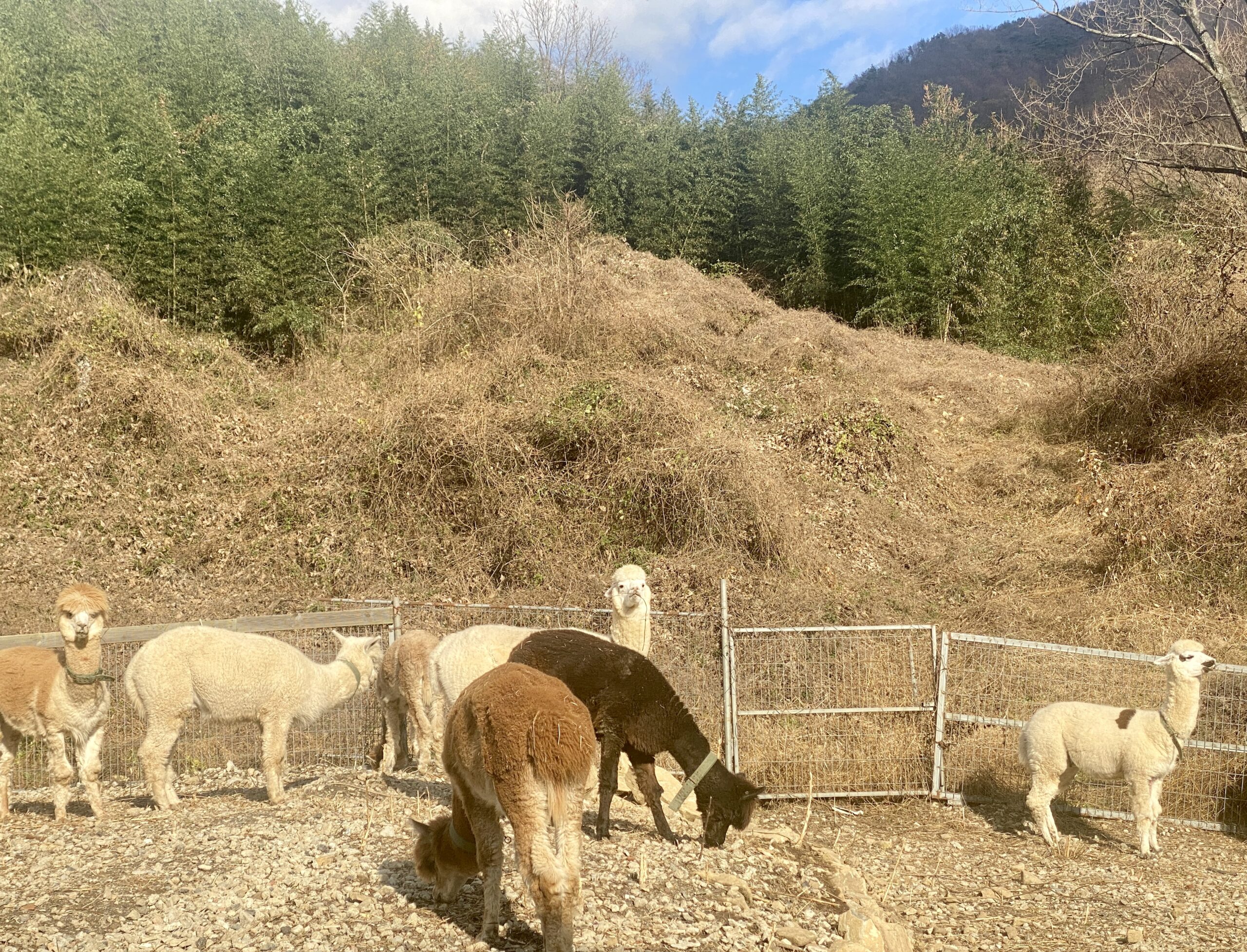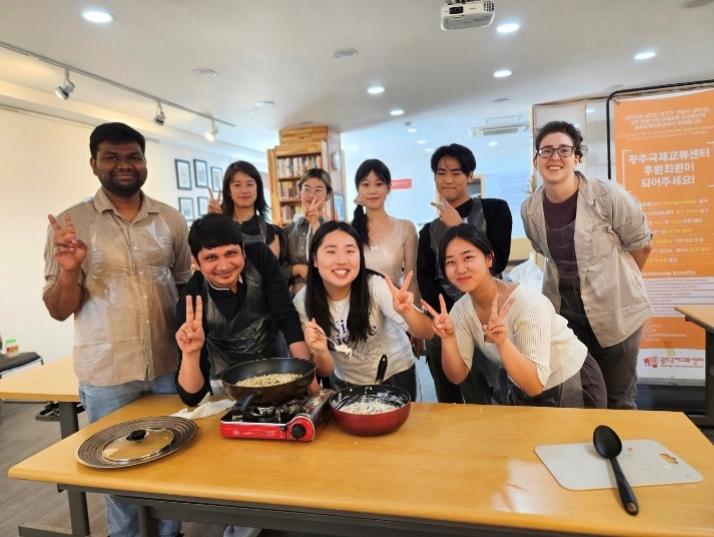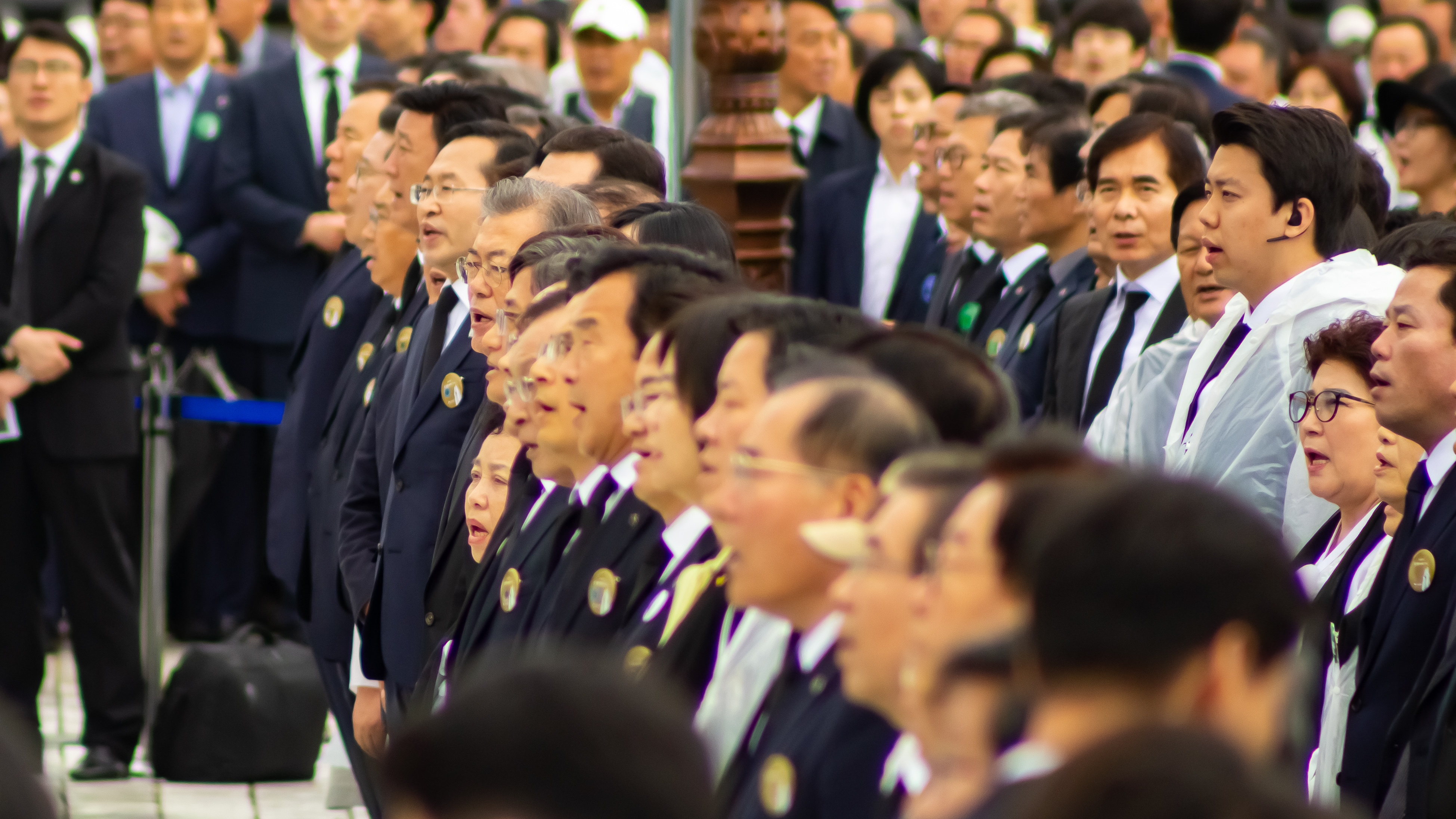Skies Gray, Heaven Weeps: May 18 Memorial Ceremony
Written by Colin Farabee
On a rainy and cool Saturday morning in May, I joined hundreds of people gathering in the May 18 Cemetery outside of Gwangju to grieve and to remember. Photographers lined the walkways and the press stand to capture the speeches and the crowds. We were in for quite a surprise, and though we did not know it yet, we would be witnesses to a historically and politically significant speech.
As we filed to our seats clad in rain ponchos with umbrellas raised, the weather relented and the rains ceased, and though it remained gray and oppressive for a time, the skies began to lighten. Just before the official governmental delegation’s arrival, a notable conservative politician snuck into the venue at the last second from a side entrance. His attendance was extremely contentious, so much so that the streets into the cemetery were lined with chanting protesters shaking signs with the politician’s name on them. This politician belongs to the more extremist political faction of Koreans who deny that the May 18 Democratic Uprising occurred as it was described, or allege that it was North Korean communists who falsified the “massacre” to humiliate the government. His entrance caused quite a commotion. He and his security detail were only able to move to their seats slowly because of the swarm of photographers and protesters surrounding them. Finally, after that furor had died down, people’s attention was redirected towards the video screens and central walkway as the government officials arrived. Only then did we learn that it would be President Moon Jae-in delivering a speech that day, not the prime minister. After greeting some of the survivors and shaking hands with local politicians, the president made his way to his seat and the ceremony began.
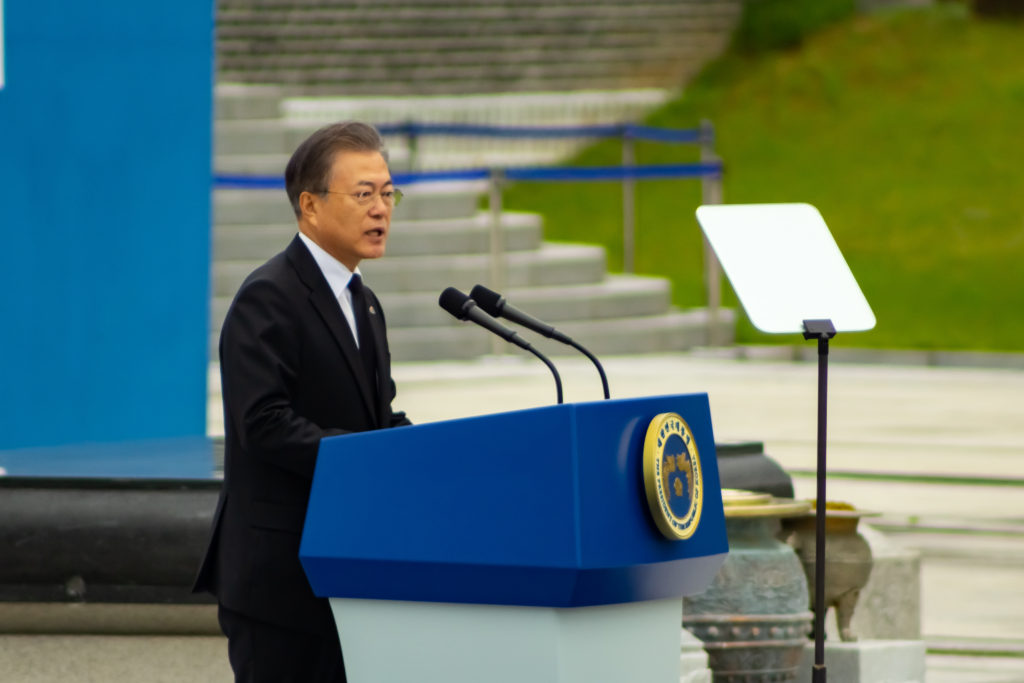
The ceremony opened with a speech from the chairman of the May 18 Memorial Foundation. He laid out the timeline of events leading up to the Uprising, the events of the ten days of bloodshed, and the aftermath in Korea. After his speech, a video played of a woman who had lost her son in the Uprising, and she told her story of trying to keep him at home. As she was sick at the time, she was physically unable to stop him, and so he walked out after an argument with her about the importance of the protests. She never saw him again.
An older woman took the podium next and spoke about her involvement in the May 18 Uprising. A nurse at the time, she bore witness to injured students coming into the hospital. Impassioned, she rode atop a vehicle, megaphone in hand, calling out to the people of the city and to the soldiers attacking the protesters. A younger woman read a poem about how grateful she was to the uncle she lost, and to all the people who died in the Uprising for her country, for her freedom, and for the future that they were not able to see. After she finished, President Moon and his wife, First Lady Kim Jung-sook, placed incense in the ceremonial brazier and placed a wreath at the monument before the president took the podium for his address.
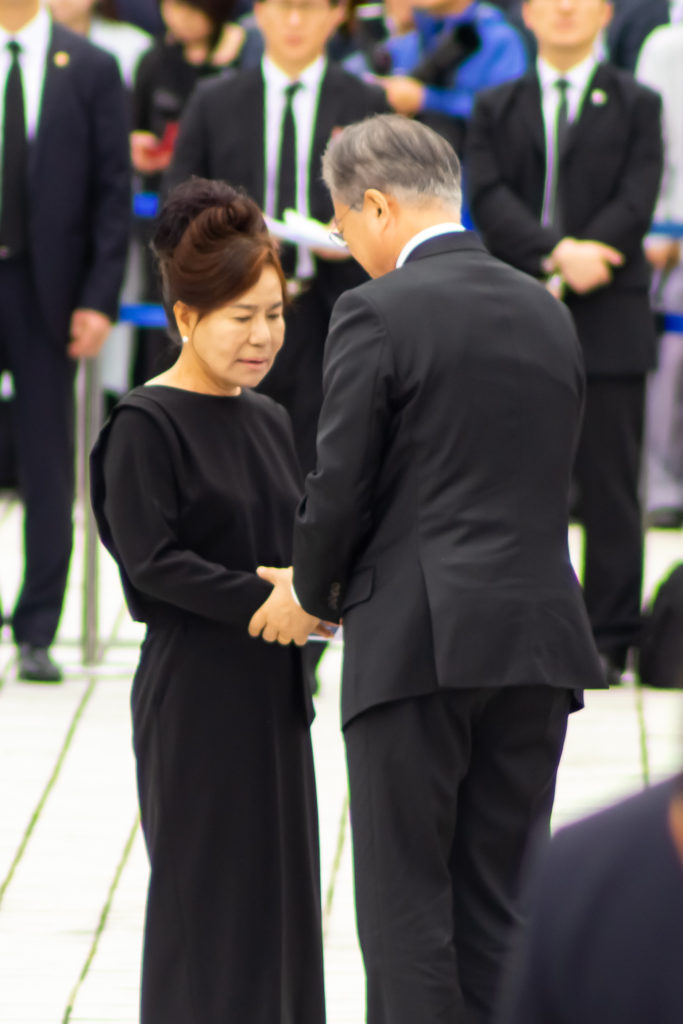
President Moon began by apologizing directly for the government’s violent actions of the May 18 Uprising. He honored those protesters, saying that they showed “what true love of your country is about.” He commented on the unexpectedness of his appearance this year, as many had expected him to come next year on the 40th anniversary. He chose this time, he said, for two reasons. The first, more human reason, was due to the deep sorrow he feels for the trauma the people of Gwangju had to suffer. He apologized again for the horrendous violence and massacre the state authority committed against its citizens. The second was to make an appeal “to all Koreans,” though I feel he may have had a more specific group in mind, given the nature of his remarks.
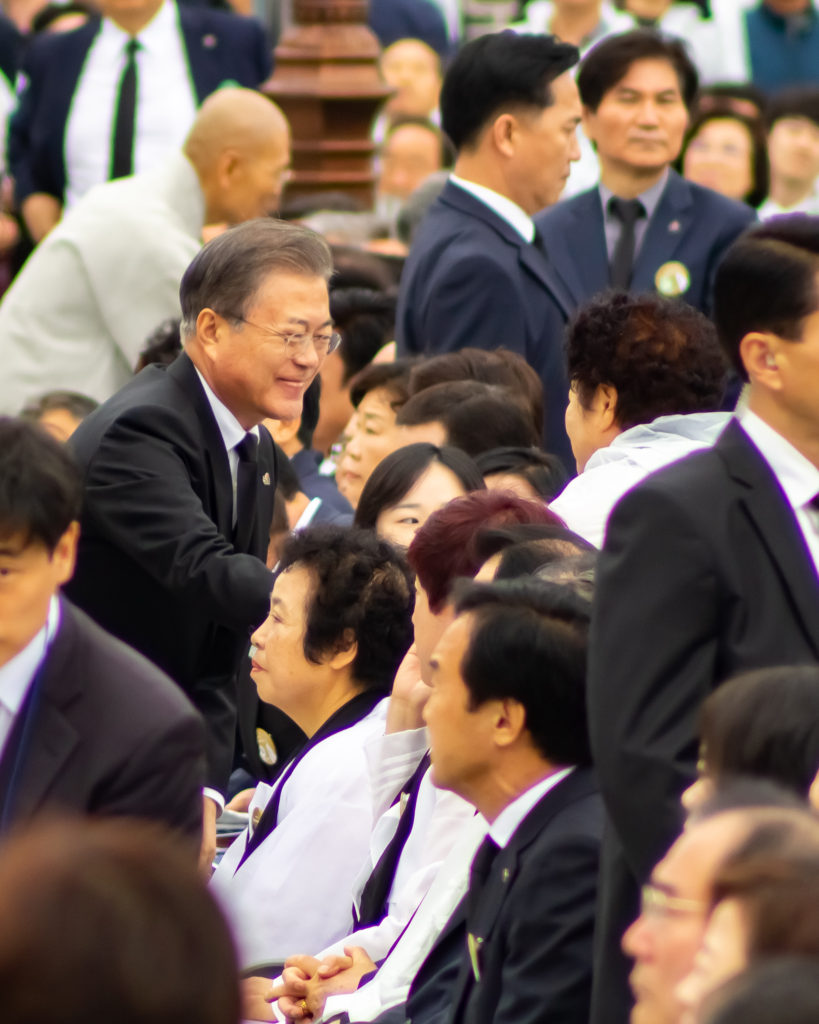
He wanted to remind the people that it has been over 20 years since the conclusion of the first investigation, when the government first applied the term meaning “massacre” to the events of 5.18. Further discussions and debates about that fact, he stated, are a pointless waste. The May 18 Uprising, he said, is not political and should not involve political parties, and Korea must come together as a nation and accept the burden of the crimes. By prosecuting those responsible for secret burials, sexual violence, and firing on victims from a helicopter, he hoped that the people of Gwangju could finally let go of the heavy burden their history has placed upon them.
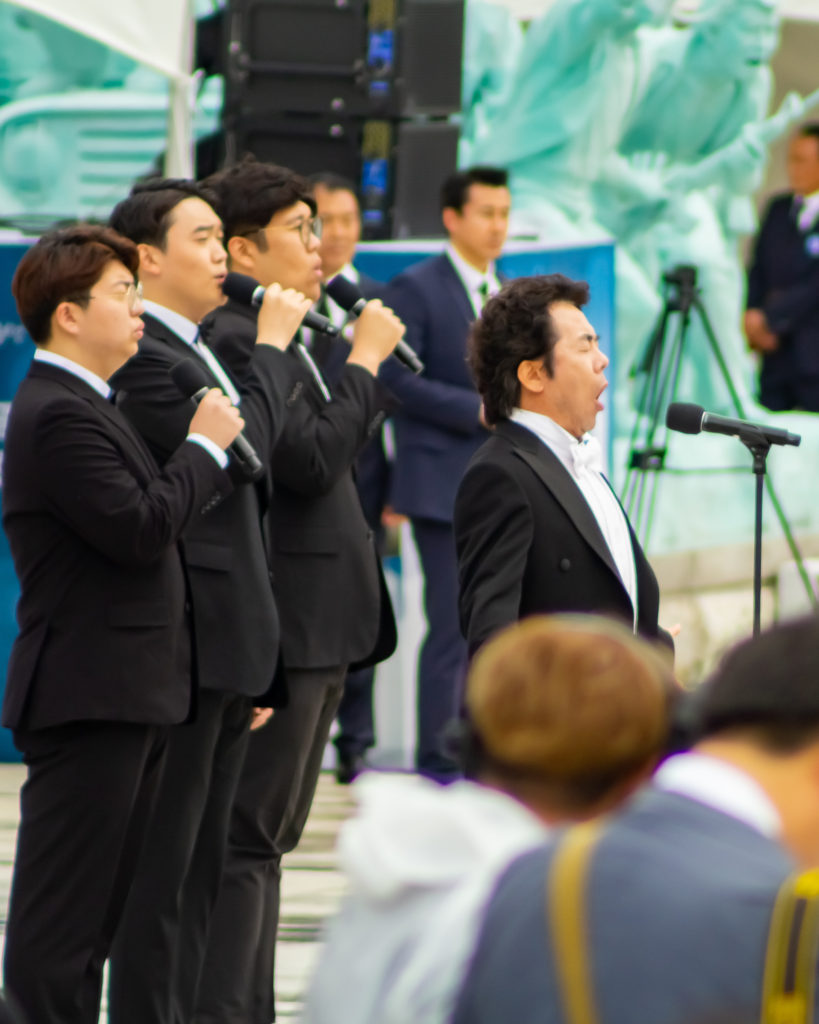
He closed his speech promising to push democracy in Korea further, and to do what he could to find those responsible in a transparent way, so there could be no confusion about facts, documents, or guilt. He pledged to work to make a better tomorrow for Gwangju, and to help the city realize its dreams. I felt blessed to witness first-hand the healing power those gestures held for those long suffering from old wounds and hidden pains. I know that as the masses filed out of the gates to return to their normal lives with a little more closure, the president of Korea had had a deeply emotional and positive effect on their lives that day.
Photographs by Sarah Pittman
The Author
Colin Farabee is a 27-year-old Californian working as an English teacher in Sangmu. His hobbies include extreme sports, riflery, and teaching historical European martial arts. He also writes adventure modules and plays lots of nerdy games, such as D&D and WH40k.

